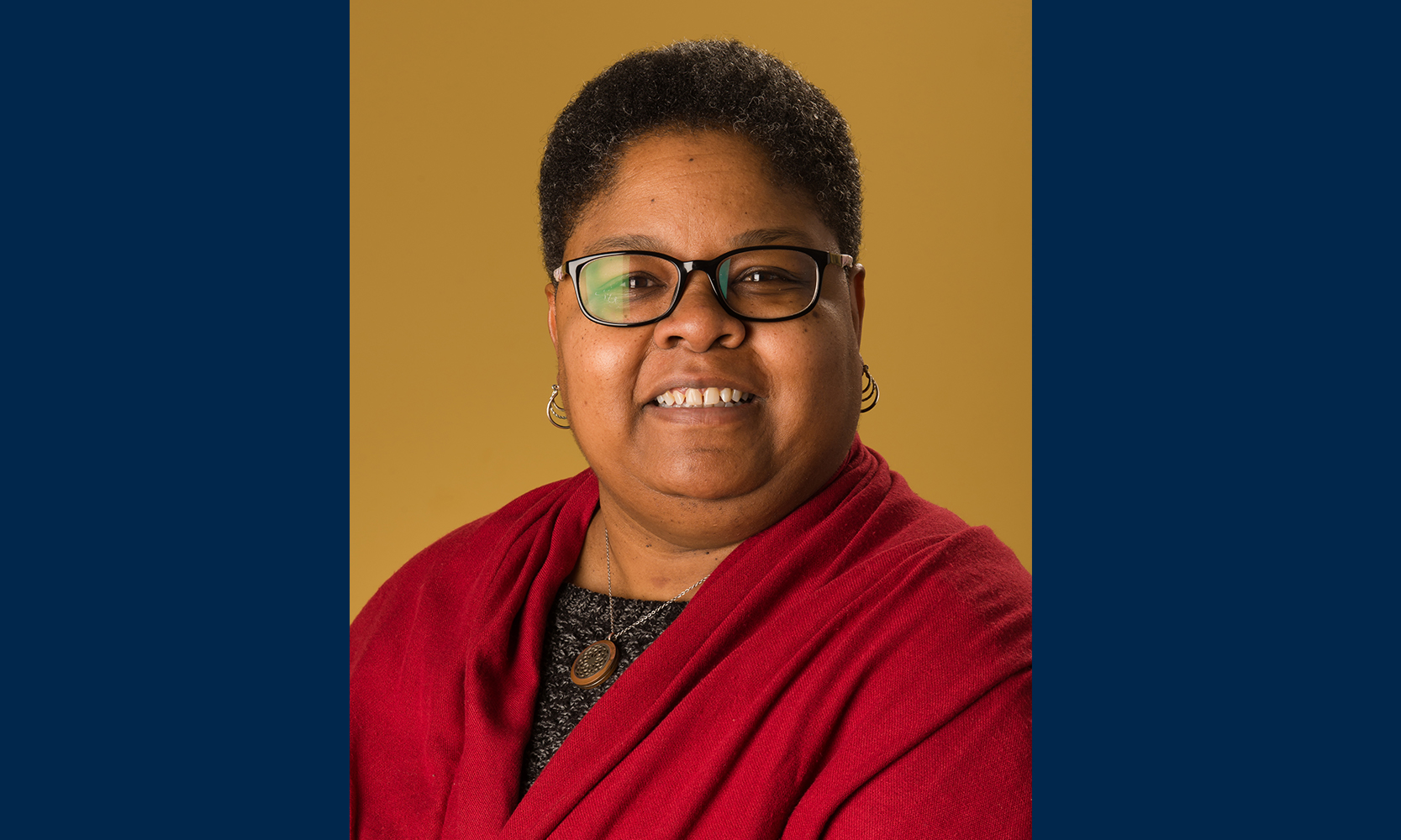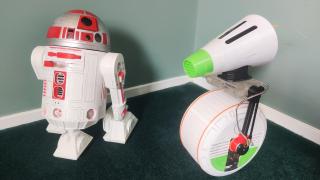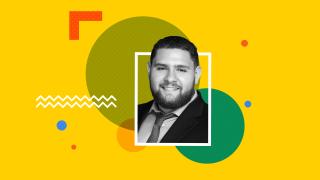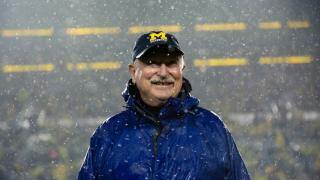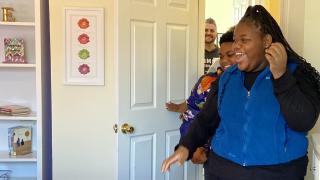
New library User Services Director Monica Adams has worked at libraries from here to Florida. She earned her Master of Library and Information Science degree with her young son at her side. And knowing the importance that the library plays in student experience — and success — she looks for ways to serve students based on information and research needs.
Now at UM-Dearborn, Monica's glad to be back home in southeast Michigan and working with campus' diverse population of learners.
Speaking with Monica recently, she shared personal stories and professional highlights — including some helpful advice she received from the Dalai Lama.
Monica always felt a connection with the library — and later found out she had a family tie.
“I’ve always been drawn to books and movies. I like learning about someone’s point of view, real or fiction, to help me think about where they are coming from. It pushes you to think about ideas or experiences you may not have ever considered before.
When I was at Henry Ford Community College, I worked as a library assistant. I also worked as a library student assistant at MSU when earning my bachelor’s. As I was getting ready to graduate from college, I was thinking about going to graduate school for my MLS. I lived in East Lansing with my son Stephen, who was maybe nine at the time. I talked with my father and aunt right before graduation and they shared with me that my paternal grandmother, Christelle Hart, was a teacher and later a librarian for the last seven or so years of her career in Jackson, Mississippi. I had no idea. It must be in my blood. I was meant to be a librarian. For the next two years, I’d pick Stephen up from elementary school, stop at the Wendy’s drive-thru by the highway and head to Wayne State from East Lansing. It wasn’t easy, but I knew I was exactly where I was supposed to be.”
When stressed, she remembers advice she received when she met the Dalai Lama.
“If you go to Nova Southeastern University’s Alvin Sherman Library, to the right of the entrance is a small alcove — and in the alcove, there’s a Tibetan Buddist prayer wheel that’s been blessed by the 14th Dalai Lama. When I worked at Nova Southeastern as a librarian — which was where I landed my first library position out of graduate school — the Dalai Lama was invited to speak for the introduction and dedication of the wheel in 2004. And he came!
He spoke on the front lawn of the library and people were able to ask him questions. One thing the Dalai Lama said has really stayed with me. His message was that world peace cannot come until we have inner peace. He was basically telling us — it starts with you. That’s deep. So when I’m feeling stressed or feel like I have little control, I do try to remember that I can control what I put out into the world. If you ever go to Fort Lauderdale, you should see the prayer wheel — not only can you see it, you also can spin that wheel and pray.”
‘Ain’t no turning back’ is Monica’s personal motto.
“Harriet Tubman is a hero of mine. Not only did she resist the injustice and oppression forced upon her by fighting for her own freedom — she went back into the world she escaped to help others again and again. That’s courage. That’s someone to look up to. When I need to find courage within myself, she helps me. She was basically the conductor for the Underground Railroad. If she could do what she did, I can push through whatever I need to do. I’ve been wanting to honor her for some time and decided to get a Harriet Tubman tattoo last summer. Right above her image is inscribed ‘Ain’t No Turning Back.’ It’s my reminder to never give up.”
Learning is all about making connections.
"When you work in a library, you serve a diverse population. That’s one of the reasons I love being a librarian. But before you can truly serve someone, you need to know where they are coming from. You need to watch and listen. It’s important to understand who they are, where they are at this time in their lives, and how the library can provide a service that relates to their needs. It’s way beyond book checkout.
As Head of User Services at Columbus State University, I put a lot of focus into outreach programs. I remember seeing how much our International student population valued the library, but weren’t engaging or connecting outside of their group. So we looked for ways to plug them in. Talking with them, they shared how they would watch movies with subtitles to learn English. Knowing how movies connect us, we came up with an idea to have an International Film Series with discussion at the library. Our International students wanted an immersive experience and to meet more American students — and I’m sure American students felt the same way about meeting International students — but there wasn’t a natural space for that outside of class. So we created one. The International students went through the Kanopy streaming service and picked films they wanted to show and talk about. It was very successful and it became a recurring campus event.
As a librarian, it is important to be curious and take time to learn about other people and their experiences. Connecting with people is a first step in connecting them with the information and services they need.”
It’s important to meet people where they are at — literally and figuratively.
“Many students at Columbus State were active military because Fort Benning was nearby. So I’d go out to the base and provide research education. But more than giving resources, I took time to learn how they were thinking about their education.
As educators, we look at retention rates and graduation rates — and those are important — but sometimes there are other factors at play. Many of my military students saw their college time as “I can take four classes and then I’m gone again.” It’s not that they didn’t want to graduate — it just wasn’t the first thing on their mind. They had a war in Afghanistan, family life and other pressing needs. But, even with all that, they did make room to get four classes in. So it was important to make that time count.
Knowing their goals, I focused on learning skills. Why do we think what we think? When forming our views of the world, where are we getting our information from? Is the information objective? Subjective? And why does this matter? I also wanted to teach them how to make a persuasive argument through information gathering. Those are skills that could serve them well for the rest of their lives. Maybe our time together would lead to a diploma, maybe it wouldn’t. But it would give them what they need to explore the who, what, where, whens and whys throughout life. It was my way of saying, no matter what you do or where you are, I got you.”

